Photographs: Courtesy, Grosvenor House S Kalyana Ramanathan in London
Whoever said the first impression is the best impression was clearly wrong. Stepping into the main lobby of Grosvenor House hotel on Park Lane in Central London, even the most generous of critics would have to say "I have seen better."
It is not that it is bad or unimpressive, but there is very little that offers the shock and awe value which hotels, even in India today, can offer -- think of Mumbai's Taj Mahal Hotel, or even the more modern Shangri-La in New Delhi.
But Grosvenor House is like jazz. You have to invest a little time before you can appreciate its intrinsic charm. The physical beauty of this hotel is not its greatest strength -- its strength is its history.
This eight-storey building made quite a stir in London when it first opened for business in 1929. The public and media both made a big fuss about the 'monolith' spoiling the flat cityscape of old London.
. . .
Why Sahara paid Rs 3,300 crore for a London hotel
Image: Subrata Roy, managing worker and chairman, Sahara Group.Some even took their angst to the House of Commons. But the issue was put to rest when Sir Edwin Lutyens (who designed British New Delhi) was brought in by the hotel's owners to put eight pyramid-roofed pavilions on each block of the building.
Lutyens was the son-in-law of the then Viceroy of India, so few dared to question his work. Lutyens provided the additions to give this Edwardian building its "New York look".
Howard Hartley, a 29-year veteran salesman with Grosvenor House, is waiting at the Park Street entrance of the hotel at 4 pm sharp, as agreed. He is my guide for the next hour and comes highly recommended by the communications team. There is very little Hartley will not know about the hotel and its history.
The first stop of this guided tour is, however, the latest addition to the hotel: the JW Steakhouse Cuts. The wooden floor of this shop was specially brought in from a now-closed bakery in Paris. "That particular period wood was needed to lift the ambience," says Hartley.
. . .
Why Sahara paid Rs 3,300 crore for a London hotel
Image: Winston Churchill.Photographs: Courtesy: http://nobelprize.org
The private dining room adjacent to the steakhouse has a much longer history.
The walls here are adorned with pictures of the who's who of the celebrity world, in politics, sports, business and royalty, who have taken a meal there: Winston Churchill, Dwight Eisenhower, Orson Welles, Jacqueline Kennedy, Henry Kissinger and Ella Fitzgerald. A more modern celebrity visitor is English football star Wayne Rooney.
Of the eight banquet halls in Grosvenor House -- they can take 4,500 people at any given time -- the Great Room is the most famous.
This 3,147 sq metre hall used to be an ice-skating rink until 1934. Today it is the largest banquet hall in the United Kingdom, and the second-largest in Europe. A favourite for wedding receptions, this hall hosted 60 Indian weddings last year alone.
. . .
Why Sahara paid Rs 3,300 crore for a London hotel
Photographs: Courtesy, Grosvenor House
The most fascinating feature of this hall is the absence of a single central pillar, which provides an uninterrupted view from corner to corner. Renting this room for 24 hours costs nothing less than pounds 20,000, food not included.
The hotel has 494 rooms of different shapes and sizes to accommodate budgets of pounds 250-1,500 a night. The real charm is, however, the staff of 590, drawn from 60 countries. "We can welcome almost any guest in his (or her) mother tongue," says Hartley, with undisguised pride.
Even though Indian customers account for just 2-3 per cent of Grosvenor's annual business, the who's who of Indian business, be it the Ambanis, the Birlas or the Mittals, continue to drop by regularly.
You are not likely, however, to find a Tata visiting this hotel, because the Tata group already has its own hotel and top-end restaurant business in London (St James Court). Surprisingly, Hartley is not sure whether Subrata Roy or his family have ever used this hotel.
. . .
Why Sahara paid Rs 3,300 crore for a London hotel
Photographs: Courtesy, Grosvenor House
Can Roy and his team carry the heavy burden of a brand which is so closely intertwined with English society?
The general opinion is that, for Sahara, this is just another investment. The new owners are unlikely to do anything that will upset the applecart. Says Hartley, "Like the previous owner, RBS, I am pretty sure Sahara, too, will do its best to protect its investment."
Sahara insiders, however, say they will do more than just protect the investment. Even before the ink on the deal is dry, big investment plans have been drawn up. New restaurants, a spa and casino, and bigger Indian weddings top the list.
It's too early to tell, but it's possible that Sahara may be the landlord who will finally usher Grosvenor House, this World War II relic, into the modern era.
. . .
Why Sahara paid Rs 3,300 crore for a London hotel
Photographs: Courtesy, Grosvenor House
After Grosvenor check-in, Sahara gets down to work
A little over a week after India's Sahara Pariwar announced purchase of London's legendary Grosvenor House hotel, there are indications the group is planing to play a bigger role in day-to-day operations of the property.
The Lucknow-based group paid pounds 470 million (Rs 3,300 crore) for the hotel, which counts the royal family and numerous state heads as patrons.
On Wednesday, a source in the group's interests in London said it would sink its teeth deeper into the day-to-day operations of Grosvenor House. A team from Sahara is soon expected to move to London to collaborate with the current management, led by JW Marriott, to ensure that decisions on important aspects such as finance, operations, human resources and strategy are taken jointly.
Even though Sahara owns Grosvenor House fully, the operations are with Maryland-based JW Marriott under a 50-year lease. Though the lease is in its eighth year, it is learnt that Sahara Pariwar may, if need be, exercise the right to terminate it, taking on itself the day-to-day operations.
. . .
Why Sahara paid Rs 3,300 crore for a London hotel
Image: Subrata Roy, Sahara Group chief.Photographs: Reuters
Under the agreement, transferred from Royal Bank of Scotland (which sold the hotel to Sahara), JW Marriott has to share 80 per cent earnings before interest, depreciation, tax and amortisation with Sahara.
Sahara insiders say there is no immediate plan to change the arrangement but if there is a need, the company will be keen to change the contract, so that Marriott receives just 10 per cent fee for running the hotel. In such a case, Sahara can bear the cost of day-to-day operations, after taking on its rolls all 590 employees, they say.
Sahara also has big plans to expand the business. This includes opening a spa, an Indian restaurant, a casino, and even exhibiting the large library of Indian movies the group owns in India.
Without revealing the current revenues, Sahara said it hoped to take the top line to 35 million (Rs 245 crore) by adding new verticals.
. . .
Why Sahara paid Rs 3,300 crore for a London hotel
Image: Recreation at Hyde Park, a stone's throw away from Grosvenor House.Photographs: Courtesy, Grosvenor House
The group believes 25,000 sq ft space is unused and can be developed to improve finances. The new owner is also taking a hard look at room rates, which it believes are lower than what other five-star hotels in the vicinity charge. The rates for the hotel's 494 rooms, many of which overlook Hyde Park, are between pounds 249 (Rs 17, 480) and pounds 1,500 (Rs 1,05,300) a night, with summer occupancy touching a peak at 80 per cent.
The new owner is also looking at exploiting conventional income sources by improving the bar stock. "Why should a customer staying at our hotel go to Dorchester (Hotel) 30 metres down the road for a drink?" said a source.
Elucidating the group's plans for Grosvenor House, a Sahara insider asked, "You didn't expect us to pay pounds 470 million (Rs 3,300 crore) just for a building, did you?"
Theatrics apart, Grosvenor House is more than a lavish building in Central London. The Edwardian monolith is a pre-Great Depression landmark that once hosted the who's who of Europe and America, including Winston Churchill, Dwight Eisenhower, Jacqueline Kennedy, Henry Kissinger and Ella Fitzgerald.
. . .
Why Sahara paid Rs 3,300 crore for a London hotel
Image: A bar room at the hotel.Photographs: Courtesy, Grosvenor House
Among its English patrons, Grosvenor House counts the royal family as the most prominent one. More than three generations of the family have used the facilities the hotel offers.
Even though the Queen's last visit to the hotel was three years ago, the king-in-waiting, Prince Charles, and his son, William, are frequent customers for charity banquets at the hotel.
The last G-20 summit in London in 2009 saw Grosvenor House playing host to 14 heads of states. Its recent visitors include US Secretary of State and former first lady, Hillary Clinton.
At present, Indian patrons account for two-three per cent of room revenues. Despite its popularity, a little over 50 per cent business comes from the domestic market, followed by the trans-Atlantic countries and the Middle East.
Howard Hartley, a 29-year sales veteran at the hotel, says he has been targeting only India's creme de la creme. But he is quick to add that this is a substantial number and growing. The new Indian owners can only help improve this.

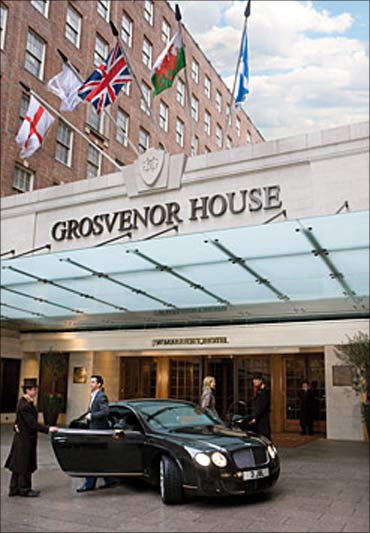
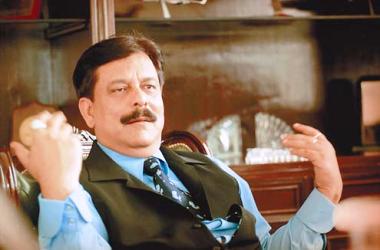
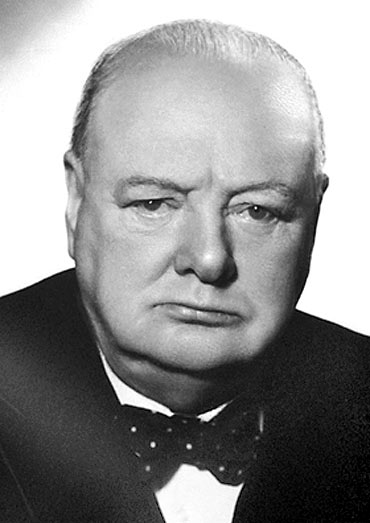
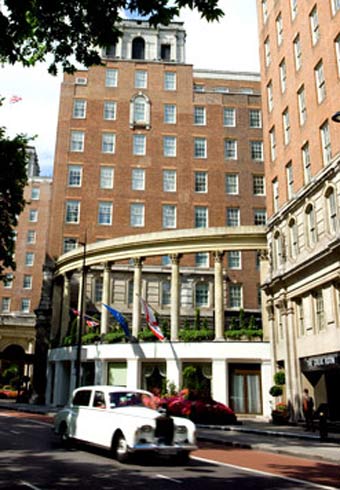
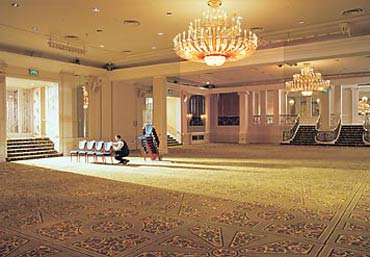

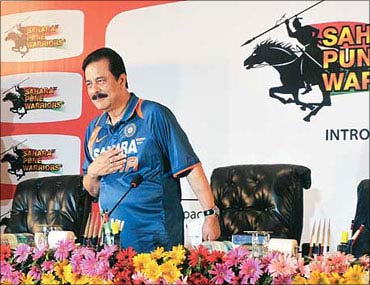
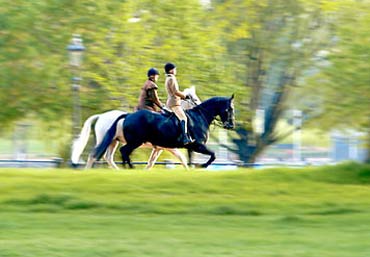
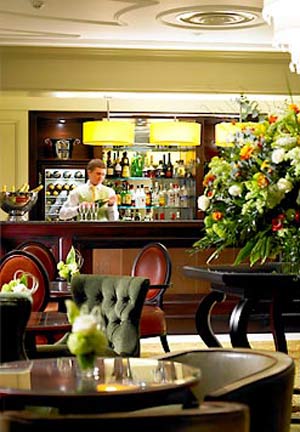

article